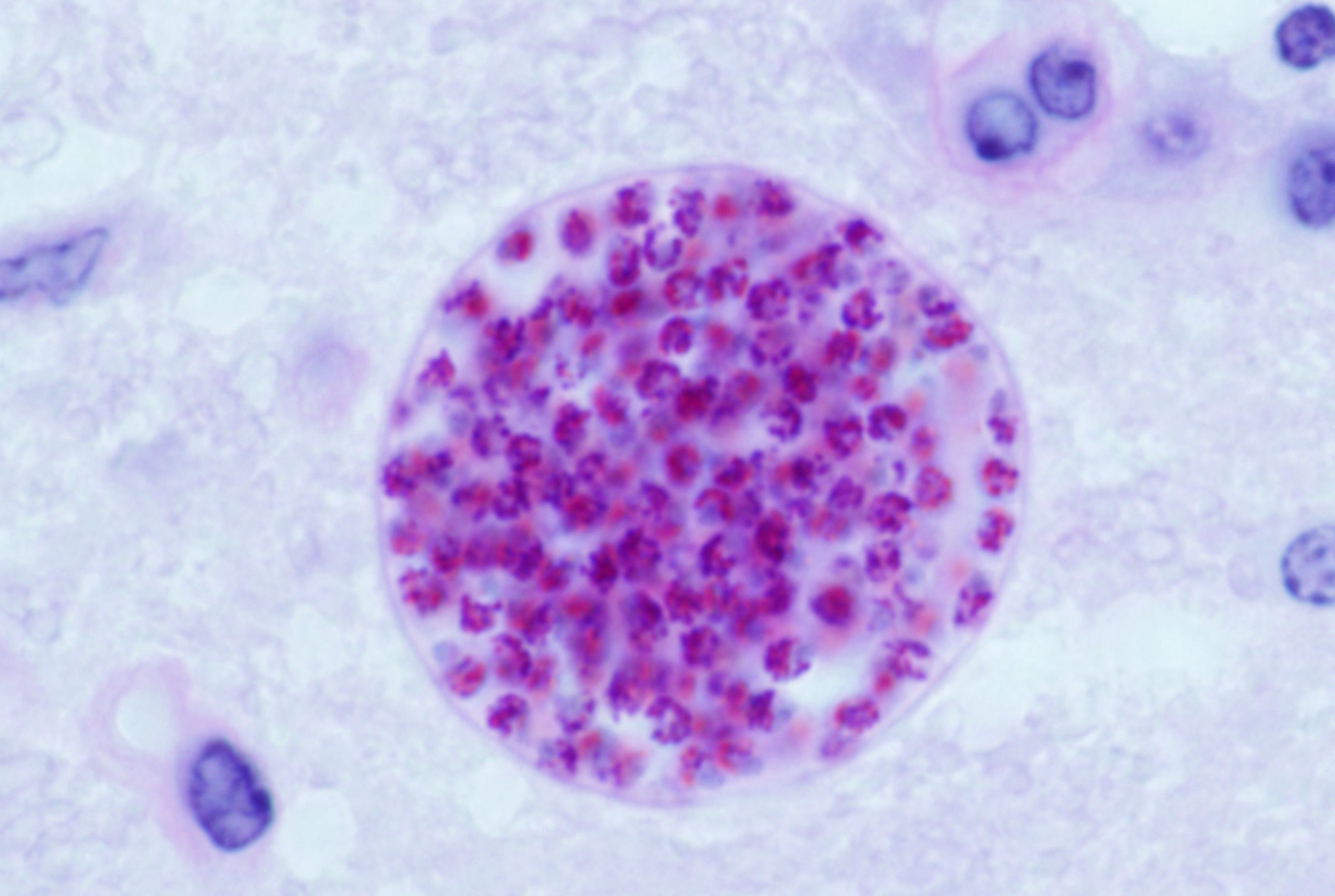Toxoplasmosis, << `tok` suh plaz MOH sihs or tok soh plaz MOH sihs, >> is a common disease characterized by enlargement of lymph nodes, usually in the neck region. Other symptoms may include fever and fatigue. In rare cases, toxoplasmosis can severely infect the internal organs. It can be fatal if left untreated.

Toxoplasmosis is caused by a protozoan (single-celled organism) often found in cats. The scientific name for this protozoan is Toxoplasma gondii. People become infected with T. gondii by eating food contaminated by cat feces (solid body waste) or by eating the uncooked meat of infected animals, such as pigs and sheep.
Symptoms of the disease can last several weeks or months. However, T. gondii stays in the body in a dormant state. Usually, it remains dormant for the person’s entire life. But if the person’s immune system is weakened by cancer or by AIDS, or other infections, T. gondii may become reactivated. The reactivation infection most commonly occurs in the brain and can be life-threatening. Such cases are treated with an antimalaria drug in combination with sulfa drugs.
If a woman becomes infected with T. gondii during her first three months of pregnancy, the infection can spread to her fetus (unborn baby). Such infection can cause birth defects or the death of the fetus. It also can cause an eye infection that may lead to blindness later in life.
